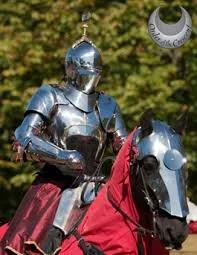The Wars of the Roses 1455-1487
-

Part 1. The Seeds of Conflict: Wednesday 9 October 2024
The Houses of York and Lancaster , destined to become bitter enemies in the fifteenth century, were both descended from King Edward III. Both had huge resources, many adherents, and large private armies. The premature death of King Henry V, the crowning in childhood of his son Henry VI, and that king’s weakness as ruler, caused a power vacuum into which rushed aggressive and ambitious noblemen. One was Richard Plantagenet, third Duke of York, and another was Edmund Beaufort, second Duke of Somerset. The mutual hatred of these two men lies at the heart of the Wars of the Roses.
-

Part 2. The First War: Wednesday 9 October 2024
In many ways the Wars of the Roses was a pretext, an opportunity to act on old family rivalries, territorial disputes, and personal enmities. It was not really a civil war, although it is often called one. The opposing forces did not seek to change their society in any fundamental way. There was no disagreement on ideology, religion, or political organisation. The conflict did not overwhelm the whole society, nor did it pose any sort of threat to the basic social framework. It was a pure power struggle, a series of straight fights for dominance. In this highly militarised aristocratic culture, personal one-to-one relationships and their repeated, traumatic breakdown were acted out on a grand scale, in battles taking thousands of lives and costing the equivalent of millions of pounds.
-

Part 3. The Second and Third Wars: Wednesday 9 October 2024
The unusual nature of the ‘Wars of the Roses’is perhaps most accurately described as ‘battle as an extension of the political process’. Factional political discord moved quickly from parliament and the royal court to the battlefield, and back again. Under normal circumstances, war represents a fundamental breakdown of the political process. In late fifteenth-century England, it became an integral aspect of it. Certainly, the killing of political opponents seemed like one way of settling disputes. The history of the period suggests though that such deeds ultimately bring about the downfall of the killer. It is often said that battles usually do not change very much - they are not normally as decisive as we might imagine. However, because of their role as a political tool during this period, and because of the tight, intimate nature of the late medieval English aristocracy, battles really did matter here. The story of these dynastic conflicts is led by the victories, the losses, the prisoners taken and the enemies killed in the field. The result of a battle was (at least publicly) considered a judgement of God, the ultimate arbiter in matters seemingly irresolvable by earthly negotiation.
Our Speaker: Toby Capwell
Toby Capwell is an independent scholar and leading authority on medieval and Renaissance arms and armour. Over the last thirty years he has worked with many of the world's great collections, including the Imperial Armoury in Vienna, the Metropolitan Museum of Art in New York, and the Royal Armouries in Leeds. He has served as curator of Glasgow Museums and the Wallace Collection, where he worked for 16 years until January 2023. He is a Fellow of the Society of Antiquaries and a Freeman of the Worshipful Company of Armourers in London. He is the author of many books on armour, weapons and tournaments, has curated numerous exhibitions, and frequently appears in film, television and online media.
